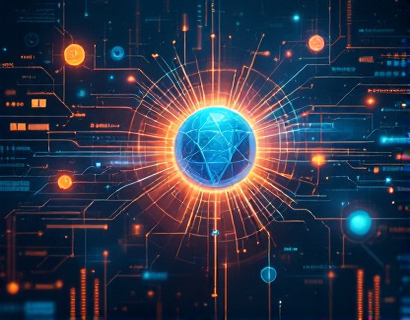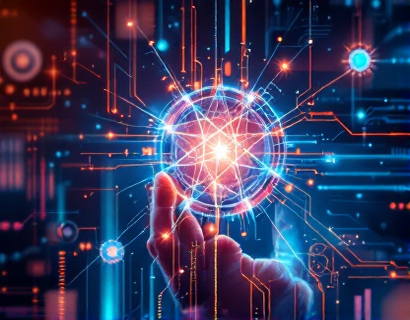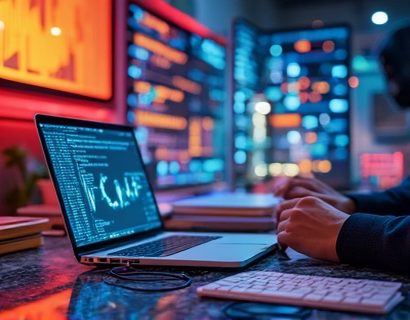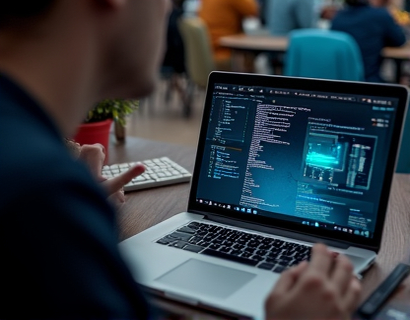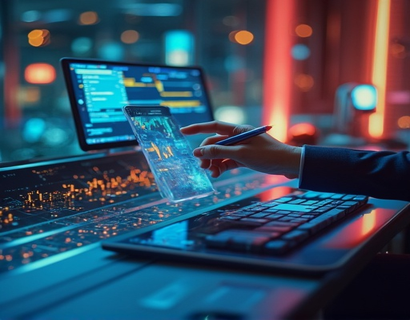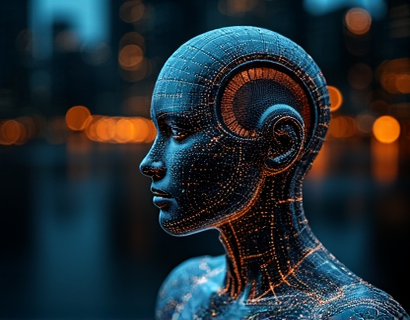Revolutionizing the Digital Ecosystem: The Synergy of Crypto and AI
The intersection of cryptocurrency and artificial intelligence (AI) is giving rise to a new era of digital innovation, fundamentally transforming the way we interact with technology and each other. This fusion is not just about combining two advanced technologies; it's about creating a synergistic effect that enhances connectivity, user engagement, and overall digital experiences. As we delve into this transformative space, it's essential to understand how these technologies are reshaping the tech ecosystem and driving growth through advanced digital solutions.
The Foundations of Cryptocurrency and AI
Cryptocurrency, since its inception with Bitcoin in 2009, has revolutionized the financial industry by introducing a decentralized, secure, and transparent method of transaction. The underlying blockchain technology ensures that transactions are immutable and verifiable without the need for intermediaries. On the other hand, AI, with its roots in computer science and machine learning, has been advancing rapidly, enabling machines to perform tasks that traditionally required human intelligence. When these two technologies converge, the potential for innovation becomes immense.
Enhancing Connectivity through Blockchain and AI
One of the most significant impacts of combining cryptocurrency and AI is the enhancement of connectivity in the digital world. Blockchain technology provides a robust framework for decentralized networks, ensuring that data and transactions are securely shared across a distributed system. AI, with its ability to analyze vast amounts of data and identify patterns, can optimize these networks for better performance and security. For instance, AI algorithms can detect and mitigate fraudulent activities in real-time, ensuring that the network remains trustworthy and efficient.
Moreover, AI-driven solutions can improve the user experience by personalizing interactions and streamlining processes. For example, smart contracts, powered by AI, can automate and enforce contractual obligations with precision, reducing the need for manual intervention and minimizing errors. This not only speeds up transactions but also builds trust among users, fostering a more connected and reliable digital ecosystem.
User Engagement and Personalization
The integration of AI in cryptocurrency applications is revolutionizing user engagement by offering highly personalized experiences. AI algorithms can analyze user behavior, preferences, and historical data to provide tailored recommendations and insights. In the context of crypto, this means that users can receive customized investment advice, alerts on market trends, and notifications about potential opportunities. This level of personalization not only enhances user satisfaction but also increases engagement and retention.
Furthermore, AI-powered chatbots and virtual assistants can provide 24/7 support, answering queries and guiding users through complex processes. These AI-driven tools can understand natural language, making interactions more intuitive and user-friendly. By reducing the learning curve and making technology more accessible, these solutions encourage more people to explore and participate in the crypto space.
Security and Privacy Enhancements
Security and privacy are paramount in the crypto world, and the combination of AI and blockchain technology is addressing these concerns head-on. AI algorithms can detect anomalies and potential threats in real-time, enhancing the security of blockchain networks. Machine learning models can identify patterns indicative of malicious activities, such as phishing attacks or unauthorized access, and trigger immediate responses to mitigate risks.
Privacy is another critical aspect where AI and blockchain intersect. Blockchain's inherent transparency can sometimes conflict with the need for user privacy. AI can help strike a balance by implementing advanced encryption techniques and zero-knowledge proofs, allowing users to verify transactions without revealing sensitive information. This ensures that users can transact securely while maintaining their privacy, a crucial factor in building trust and adoption.
Innovative Applications and Use Cases
The synergy of cryptocurrency and AI is giving birth to a myriad of innovative applications across various industries. In finance, AI-driven trading bots powered by crypto assets can execute trades with high precision and speed, capitalizing on market opportunities that human traders might miss. In supply chain management, blockchain ensures transparency and traceability, while AI optimizes logistics and predicts demand, reducing costs and improving efficiency.
In the healthcare sector, AI can analyze medical data stored on blockchain to identify patterns and predict disease outbreaks, enabling proactive measures. Smart contracts can automate insurance claims and drug distribution, ensuring that processes are transparent and efficient. In the realm of gaming, crypto and AI are creating decentralized gaming platforms where players can own and trade in-game assets as NFTs, fostering a more engaging and rewarding experience.
Challenges and Considerations
Despite the numerous benefits, the integration of cryptocurrency and AI is not without challenges. One of the primary concerns is the regulatory landscape. As these technologies evolve, regulatory bodies are grappling with how to oversee and govern their use. Ensuring compliance while fostering innovation requires a balanced approach that protects users and maintains the integrity of the ecosystem.
Another challenge is the technical complexity involved in developing and implementing AI-driven crypto solutions. Developers need to possess a deep understanding of both blockchain and AI to create robust and secure applications. Additionally, the computational resources required for AI algorithms, especially those involving deep learning, can be substantial, raising concerns about energy consumption and environmental impact.
Future Prospects and Trends
Looking ahead, the future of crypto and AI is promising, with several trends shaping the landscape. One such trend is the rise of decentralized finance (DeFi), where AI can optimize lending, borrowing, and yield farming processes, making financial services more accessible and efficient. The integration of AI with non-fungible tokens (NFTs) is also gaining traction, enabling the creation of unique digital assets with programmable features and enhanced ownership verification.
Another exciting development is the emergence of AI-powered decentralized autonomous organizations (DAOs), which leverage blockchain and AI to make collective decisions and manage resources autonomously. These DAOs can operate with greater transparency and efficiency, reducing the need for centralized control and human bias.
As the tech ecosystem continues to evolve, the collaboration between cryptocurrency and AI will play a pivotal role in shaping the future of digital experiences. By addressing current challenges and embracing new opportunities, these technologies will drive further innovation, enhancing connectivity, user engagement, and overall digital interactions.





